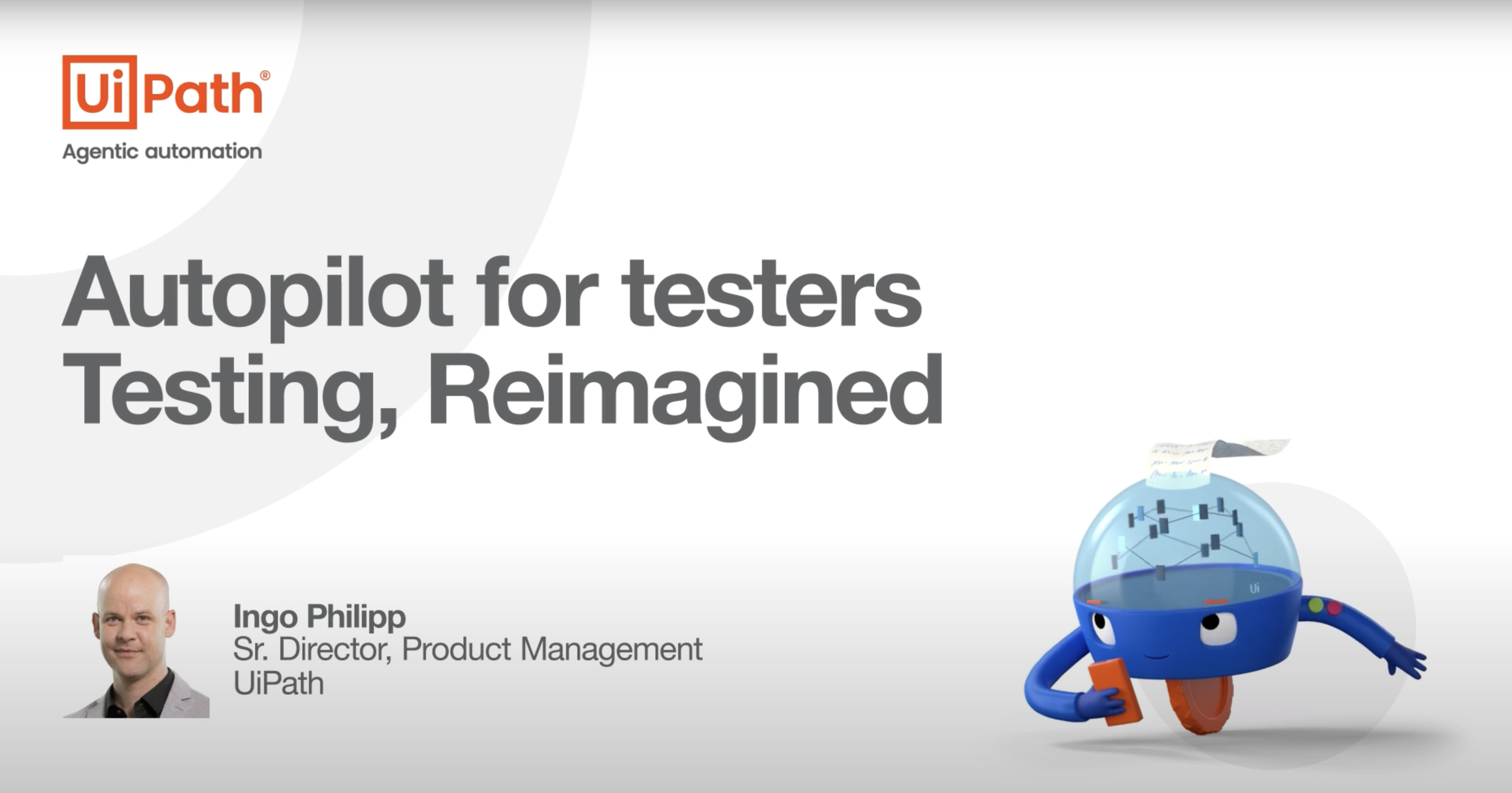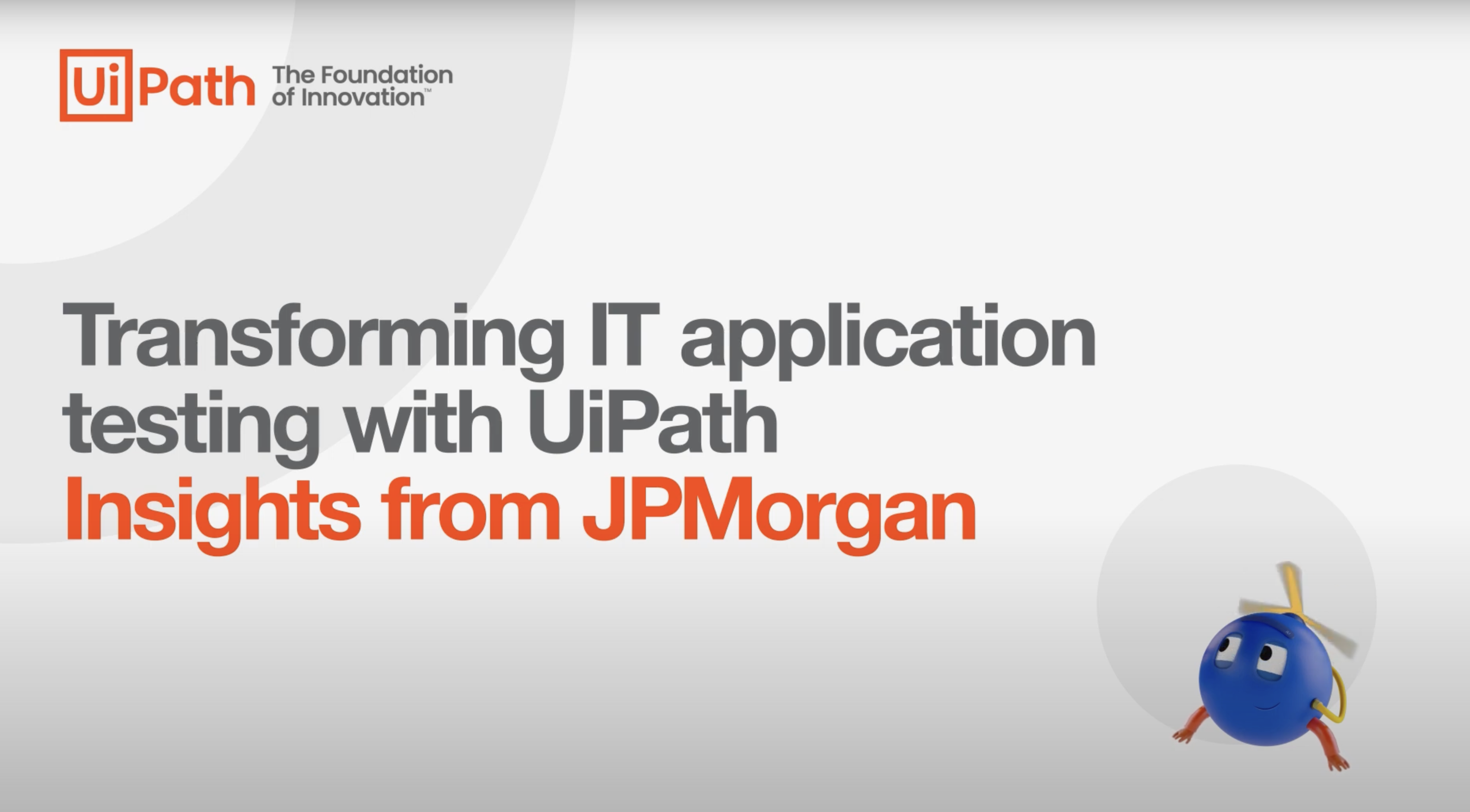What financial services organizations should look for in enterprise-grade, agentic testing
What financial services organizations should look for in enterprise-grade, agentic testing
Share at:

Financial services organizations operate in some of the most complex and high-stakes technology environments in the world. From balancing decades-old legacy systems with ongoing cloud migrations, to adopting modern fintech innovations—all while staying compliant with regulations like the Digital Operational Resilience Act (DORA), Payment Card Industry Data Security Standard (PCI DSS), and Sarbanes-Oxley Act of 2002 (SOX)—the challenges are multifaceted and relentless.
Mission-critical applications span core banking platforms like FIS, Fiserv, and Jack Henry, policy administration systems such as Guidewire and Duck Creek, customer-facing digital channels, and in house systems—both legacy and modern (Unqork, Outsystems). These systems must be fast, secure, reliable, and continuously evolving. That’s why testing in this industry must be equally agile, comprehensive, and resilient.
Yet, many organizations find themselves limited by current testing solutions—especially those rooted in web-based or open-source origins. These tools often fall short when supporting the variety of technologies that financial services institutions depend on, especially legacy solutions that far outdate compatibility with newer fintech solutions. But most importantly, they lack the compliance rigor needed for such a tightly regulated industry.
This is where agentic automation platforms make a huge impact. By combining AI agents, resilient automated testing, and enterprise-ready compliance features, modern platforms empower financial services institutions to innovate confidently while mitigating risk.
So, what exactly are the world’s top financial services organizations looking for in a testing solution today?
Seamless testing across legacy, migration, and emerging technologies
Financial services institutions often run a complex mix of technology—from legacy mainframes and thick-client systems to cloud native applications and fintech integrations. These systems don’t operate in isolation. They coexist, evolve, and must work seamlessly together.
The challenge? Ensuring functionality and security across all platforms as institutions modernize. Many testing providers can’t keep up.
Many testing tools often:
Lack robust support for legacy systems such as mainframes and thick clients
Require manual workarounds or third-party tools to test anything beyond web or mobile apps
Struggle to meet enterprise-level compliance and security requirements
That’s why leading financial institutions are turning to UiPath.
Agentic testing with UiPath Test Cloud provides production-grade, end-to-end automated testing using intelligent AI agents. These agents adapt to evolving tech stacks, ensuring continuity and resilience across both legacy and modern applications—without compromise or complexity.
Built for compliance and industry-specific regulations
In financial services, compliance is not optional. Testing solutions must meet the requirements of stringent regulatory standards like DORA, PCI DSS, and SOX. Moreover, they must support seamless integration with industry-specific platforms like Guidewire, Duck Creek, Fiserv, FIS, and Jack Henry.
These systems power critical operations—from policy and claims management in insurance to payments and account services in banking. Without testing solutions that are deeply integrated and compliance-ready, financial institutions face real operational and reputational risk.
How UiPath helps
UiPath Test Cloud is built with compliance at its core. It provides:
Audit-ready reporting
Role-based governance controls
Resilient test automation that meets the expectations of regulators and internal audit teams alike
Whether you're testing claims workflows or account reconciliation logic, UiPath ensures you're always in control—and always in compliance.
UiPath Autopilot™ for Testers is transforming testing in financial services

Autopilot for Testers is a breakthrough capability from UiPath that brings AI agents directly into the testing process. It combines built-in and customizable AI to support every phase of the testing lifecycle—making it easier, faster, and smarter to ensure software quality at scale.
Here’s how Autopilot helps financial services firms:
Speeds up testing: Autopilot automates labor-intensive testing tasks, accelerating the release of high-quality applications in banking and insurance.
Reduces risk: thanks to features like auto-healing tests and fuzzy verifications, Autopilot helps ensure systems remain stable even as codebases evolve.
Lowers costs: teams can cut down on manual testing hours and reallocate resources to higher-value initiatives.
Maintains accuracy: precision is essential in financial applications—Autopilot helps ensure data integrity and transaction accuracy.
Prepares for the future: financial institutions must be ready for constant change. Autopilot enables organizations to test faster, adopt emerging tech more easily, and stay competitive.
The result? Faster releases, fewer defects, and greater confidence in every application deployed.
State Street: Leveraging automation to future-proof application testing
See how this powerful technology is deployed at State Street.

Learn more about how State Street is pioneering a new testing framework. Check out their breakout session at the Agentic Automation Summit: watch the recording.
JP Morgan: Transforming IT Application testing with UiPath
Watch this video to learn how JPMorgan Chase & Co. has started transforming their IT application testing.

Conclusion
As financial services organizations navigate increasingly complex technology stacks and tighter regulatory environments, testing must evolve to meet the moment.
UiPath Test Cloud delivers what modern institutions need: enterprise-grade, resilient, and intelligent testing that supports over 190 applications and technologies—from legacy systems to cutting-edge cloud native platforms.
With built-in agentic capabilities and compliance-first design, UiPath Test Cloud helps financial services organizations release faster, reduce risk, and innovate with confidence.
Next steps:
Watch the webinar: "Revolutionize Software Testing for the Banking, Financial Services, and Insurance Industry"

Industry Marketing Manager, FINS, UiPath
Get articles from automation experts in your inbox
SubscribeGet articles from automation experts in your inbox
Sign up today and we'll email you the newest articles every week.
Thank you for subscribing!
Thank you for subscribing! Each week, we'll send the best automation blog posts straight to your inbox.



